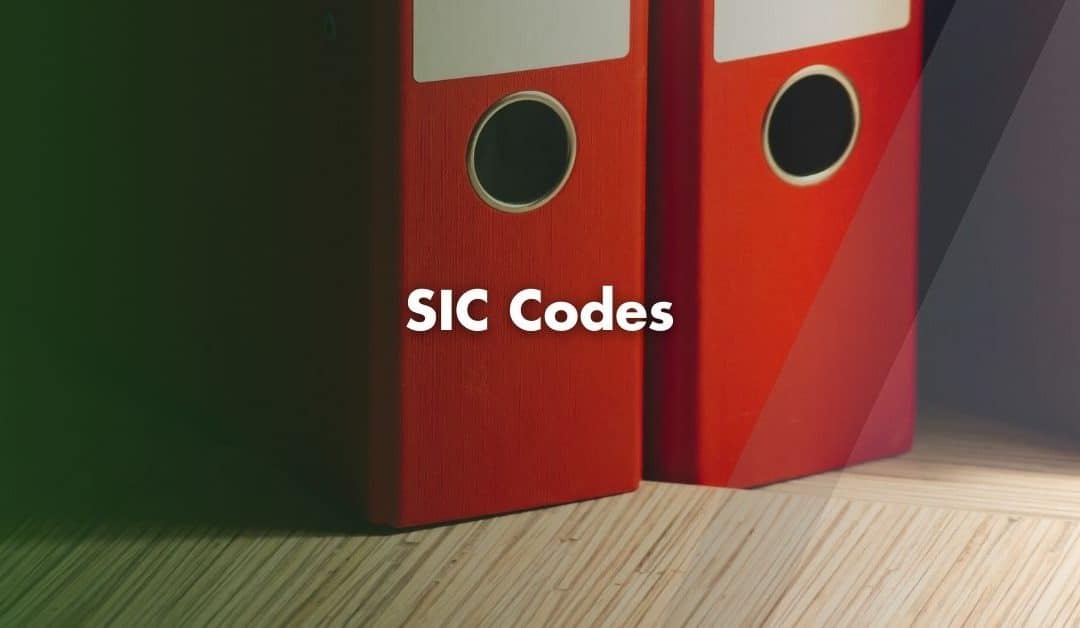If you have ever registered a company in the UK, you have likely come into contact with “SIC Codes”. But what actually are they and why do they matter to your business?
What is a SIC Code?
SIC Code stands for “Standard Industrial Classification Code”. It is a five-digit number which describes a company’s main area of economic activity. These codes also help categorise businesses into industry sectors and are useful for official statistics and government planning.
Companies House manage SIC Codes and they form part of a system which aligns with European and global classification frameworks. In the UK, they have been in use since 1948, evolving to reflect economic changes. The current version in use is SIC 2007.
When forming a limited company, you must choose at least one SIC Code. If your business involves several activities, you can select up to four SIC Codes to reflect the full range of operations. Limited Liability Partnerships do not need to provide SIC Codes.
SIC Code Structure
SIC Codes fall into sections labelled A to U, each representing a broad sector of the economy. Within each section are divisions, groups, classes and subclasses that define more specific activities.
For Example
- Section C – Manufacturing
- SIC 20 – Manufacture of chemicals
- SIC 26 – Manufacture of computers and optical products
- SIC 29 – Manufacture of motor vehicles, trailers and semi-trailers
This hierarchy allows for a detailed yet organised way to classify economic activity.
Finding the Right SIC Codes
The best approach for choosing the correct SIC Code or Codes is to use Companies House’s Keyword Search Tool or review their condensed SIC Code list.
Start by identifying your main business activity. If you offer multiple services, select the SIC Code that reflects your main source of income. You can list up to four SIC Codes in total, which is helpful if your business has varied operations or evolves over time.
Companies House treats your first SIC Code as your main activity.
Changing SIC Codes
If your business changes direction, your original SIC Code may no longer be suitable. Fortunately, updating it is easy.
You can revise your SIC Code when you file your next Confirmation Statement. If you need to update it sooner, you can file the Confirmation Statement early.
While Companies House does not usually penalise errors in SIC Codes, you should keep them up to date to avoid confusion and missing opportunities. This also ensures that stakeholders and potential clients have the correct information about your business.
Examples of Common SIC Codes
The following examples are some of the most common SIC Codes in the UK and show a wide variety of business activities under the SIC System:
- 69201 – Accounting and Auditing Activities
- 70229 – Management Consultancy Activities
- 62012 – Business and Domestic Software Development
- 01621 – Farm Animal Boarding and Care
- 96020 – Hairdressing and Other Beauty Treatment
- 74990 – Non-Trading Companies
- 99999 – Dormant Company
Advanced Manufacturing SIC Codes
Advanced Manufacturing is a high-tech, innovation-driven area of the economy. It involves digital technology, automation, research and development. To support measurement and strategy, the following SIC Codes often represent this sector:
- SIC 20 – Manufacture of Chemicals and Chemical Products
- SIC 26 – Manufacture of Computer, Electronic and Optical Products
- SIC 27 – Manufacture of Electrical Equipment
- SIC 28 – Manufacture of Machinery and Equipment
- SIC 29 – Manufacture of Motor Vehicles
- SIC 30 – Manufacture of Other Transport Equipment
These activities contribute significantly to innovation, economic growth and national competitiveness.
A Brief History of SIC Codes
The SIC System began in the United States during the 1930s and was adopted by the UK in 1948. It has undergone several revisions to keep pace with the evolving economy. Major updates occurred in 1958, 1968, 1980, 1992, 1997, 2003 and 2007.
The current standard, SIC 2007, uses five-digit codes and aligns with the EU’s NACE and the United Nations’ ISIC systems. Since October 2011, all UK companies must use SIC 2007.
This alignment helps ensure consistency in international reporting and enables better tracking of industry changes worldwide.
Contact Us
We are not just accountants; we are Chartered Accountants with one of the most reputable and premium accounting bodies. We are registered and regulated by ACCA; so you can rest assured that you are in good hands. Knowing this, don’t hesitate to get in touch with us if you require assistance: Pi Accountancy | Contact Us
This article is for general informational purposes only and does not constitute legal or financial advice. While we aim to keep our content up to date and accurate, UK tax laws and regulations are subject to change. Please speak to an accountant or tax professional for advice tailored to your individual circumstances. Pi Accountancy accepts no responsibility for any issues arising from reliance on the information provided.

